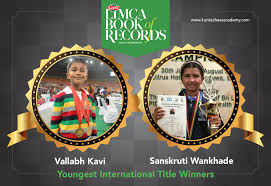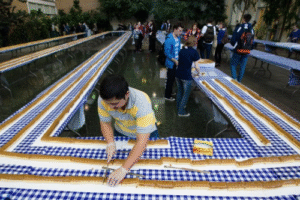In 2011, Sanskruti Wankhede and Vallabh Kavi made history by winning the Asian Schools Chess Championship titles in the Under-5 category in New Delhi. Their achievements were significant milestones in Indian chess, showcasing the emerging talent in the country at such a young age.
Event: Asian Schools Chess Championship 2011
Category: Under-5 Girls’ Title
Location: New Delhi, India
Achievement: Sanskruti Wankhede clinched the Under-5 Girls’ title at the prestigious Asian Schools Chess Championship held in New Delhi in 2011. Her victory at such a young age drew attention to her exceptional talent and her potential to become a prominent player in Indian chess in the years to come.
Significance: Winning the title in the Under-5 girls’ category placed Sanskruti among the top emerging chess players in India, especially in the realm of young girls’ chess. Her triumph inspired other young girls in the country to take up chess seriously, further advancing the role of women in Indian chess.
Rise in Indian Chess: As a part of India’s growing chess movement, Sanskruti’s win at such a young age contributed to the development of youth chess and encouraged more schools and academies to focus on training young talent.
Event: Asian Schools Chess Championship 2011
Category: Under-5 Boys’ Title
Location: New Delhi, India
Achievement: Vallabh Kavi won the Under-5 Boys’ title in the same event, becoming the first player to claim this honor in the boys’ category. His victory was a demonstration of his early chess brilliance and his ability to compete successfully at the international level.
Significance: Vallabh’s triumph at the Asian Schools Chess Championship established him as one of the brightest young talents in Indian chess. Like Sanskruti, his victory also helped generate excitement and attention around chess in schools, and inspired young children to begin their journey in the sport from an early age.
Impact on Youth Chess in India: Vallabh Kavi’s win in the Under-5 boys’ category was a positive development in the promotion of chess at the grassroots level. It added to India’s growing recognition as a chess powerhouse, where young players were steadily making a name for themselves on the global stage.
Asian Schools Chess Championship: The Asian Schools Chess Championship is one of the most significant tournaments in the junior chess calendar in Asia. It attracts young talents from across the continent, providing them with a platform to showcase their skills and gain exposure in international chess competitions.
Promoting Chess at a Young Age: The event is designed to encourage chess players to begin their journey from a young age, with categories ranging from Under-7 to Under-19. It has been instrumental in discovering young prodigies who go on to represent their countries at higher levels of competition, including the World Youth Chess Championships and the Chess Olympiad.
Role Models for Young Players: Both Sanskruti Wankhede and Vallabh Kavi served as role models for young chess players in India. Their wins demonstrated that age is not a barrier to success in chess and that early exposure to competitive chess can lead to remarkable achievements.
Future of Indian Chess: Their triumphs contributed to the strong presence of India in the international chess arena. Over the years, India has become a global hub for chess talent, producing numerous grandmasters, international masters, and promising young players. Their victories in 2011 helped lay the foundation for the future of Indian chess.
Sanskruti Wankhede and Vallabh Kavi’s wins at the 2011 Asian Schools Chess Championship marked a significant achievement in Indian chess history. Their victories in the Under-5 girls’ and boys’ categories, respectively, highlighted their extraordinary talent at such a young age and contributed to India’s growing prominence in the global chess community. The event itself helped to promote the sport of chess in schools and encouraged the next generation of young chess players to pursue excellence in the game. These two young players’ success story continues to inspire many aspiring chess enthusiasts across the country.







